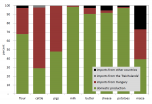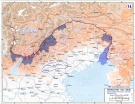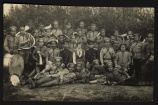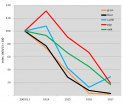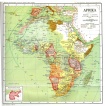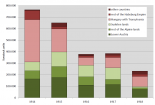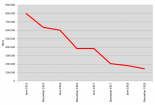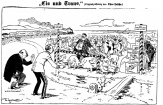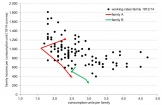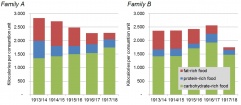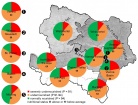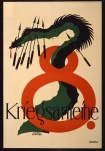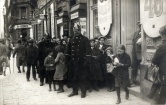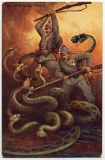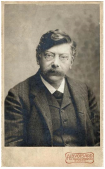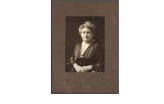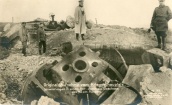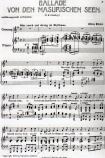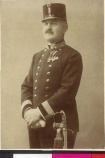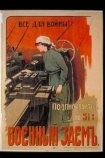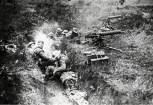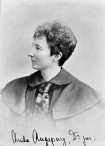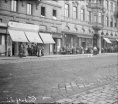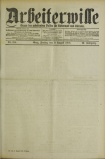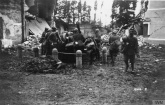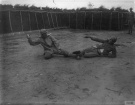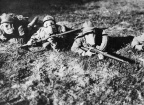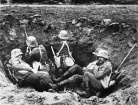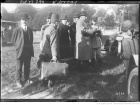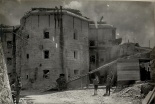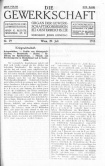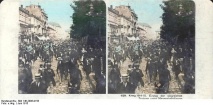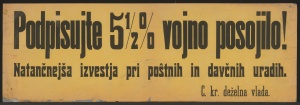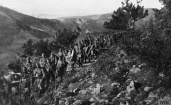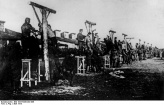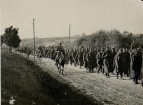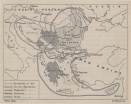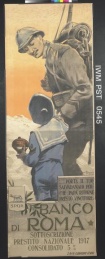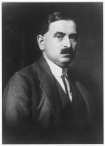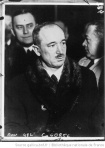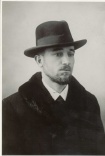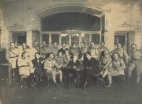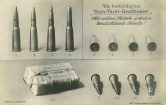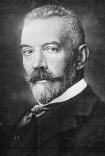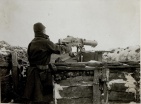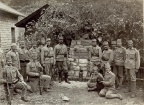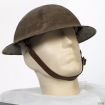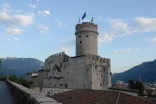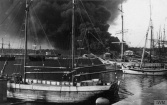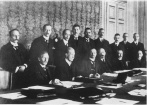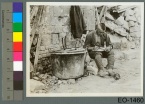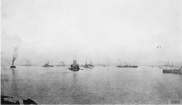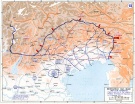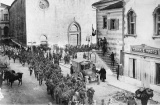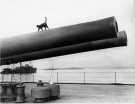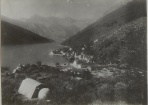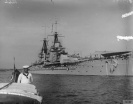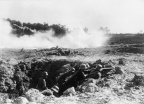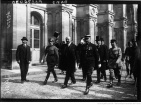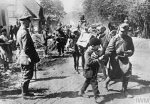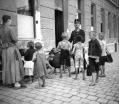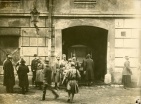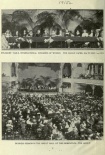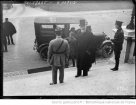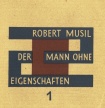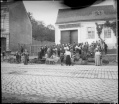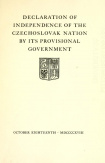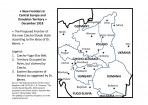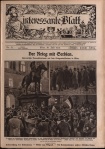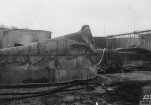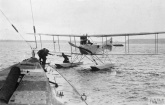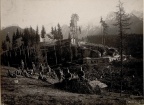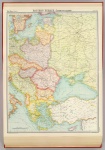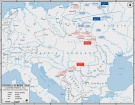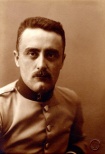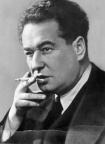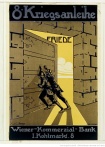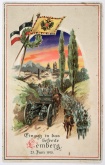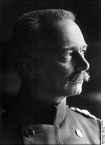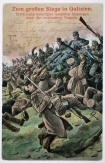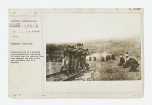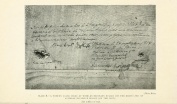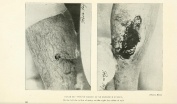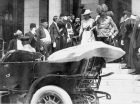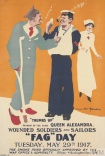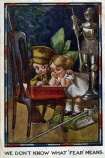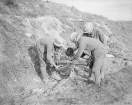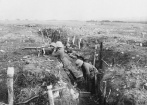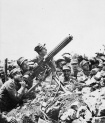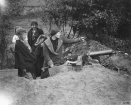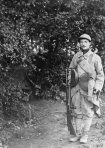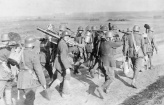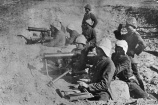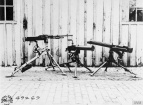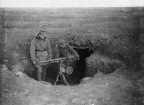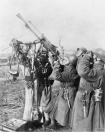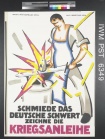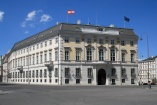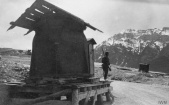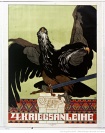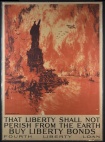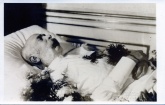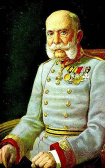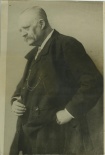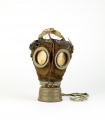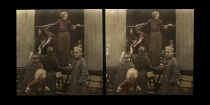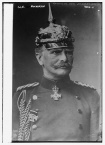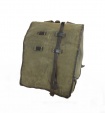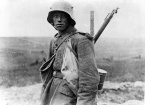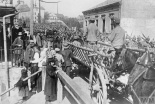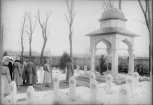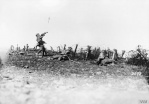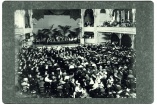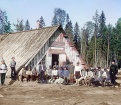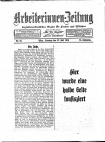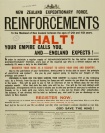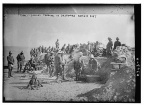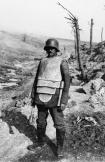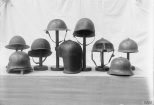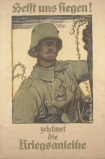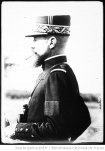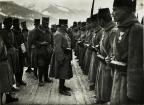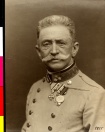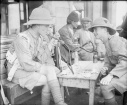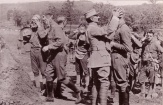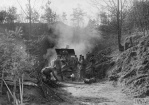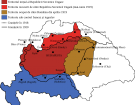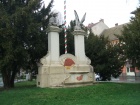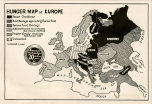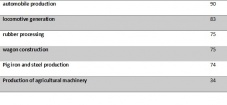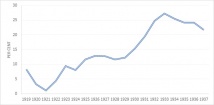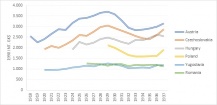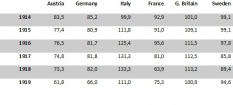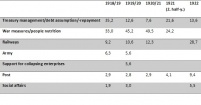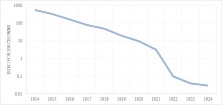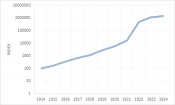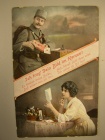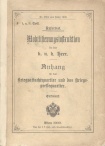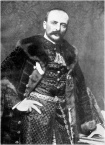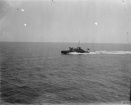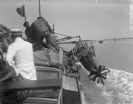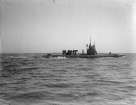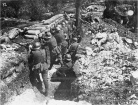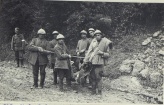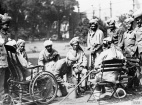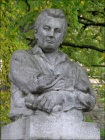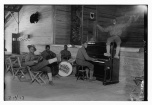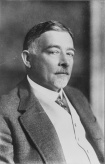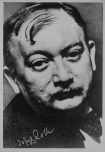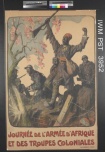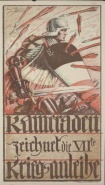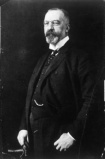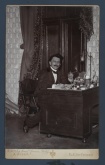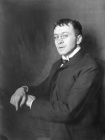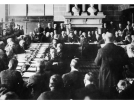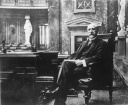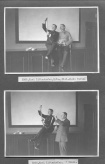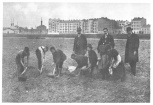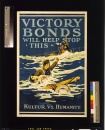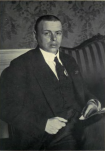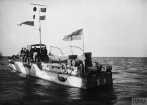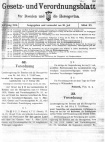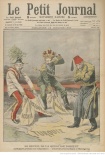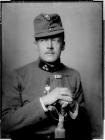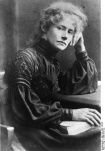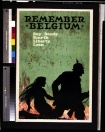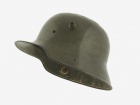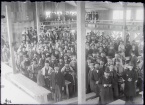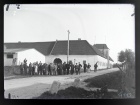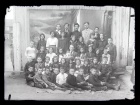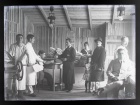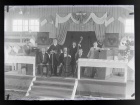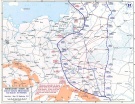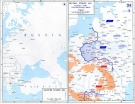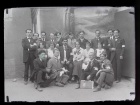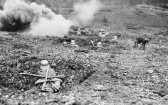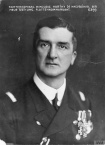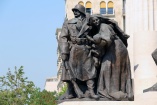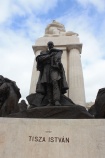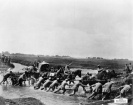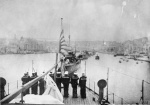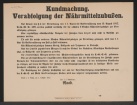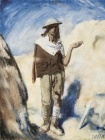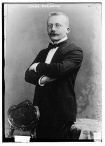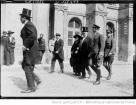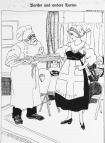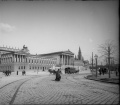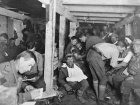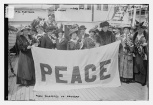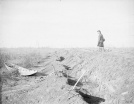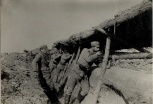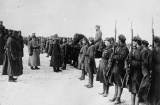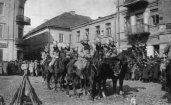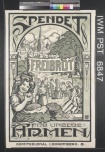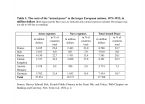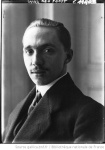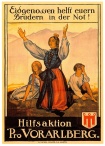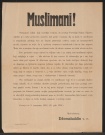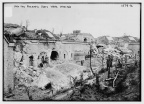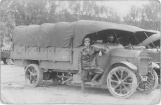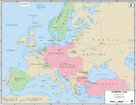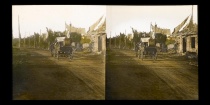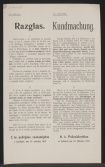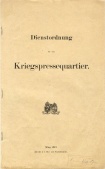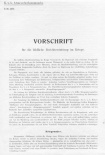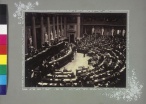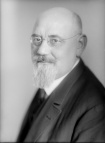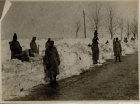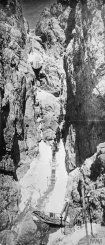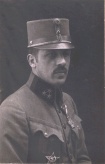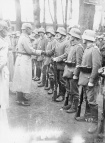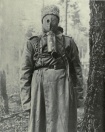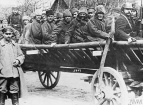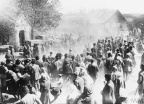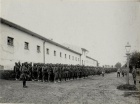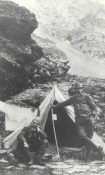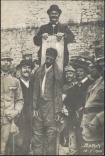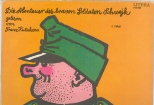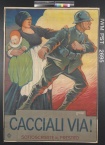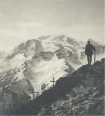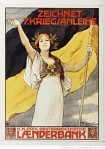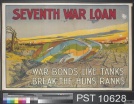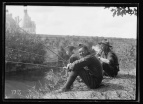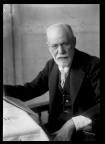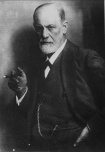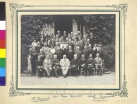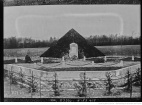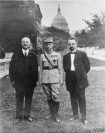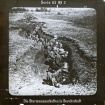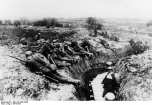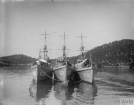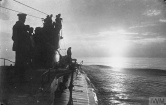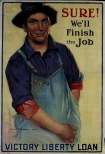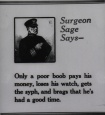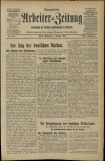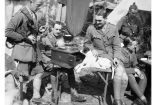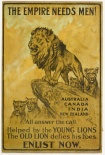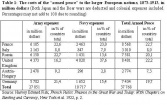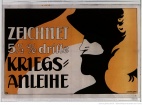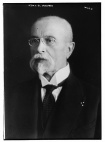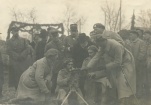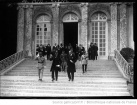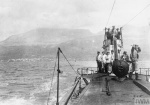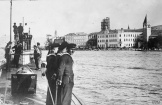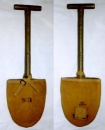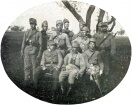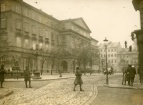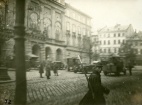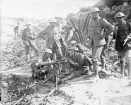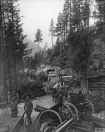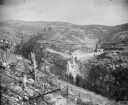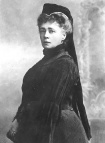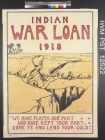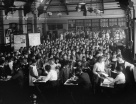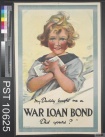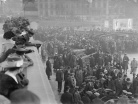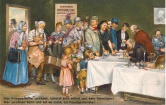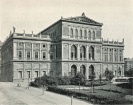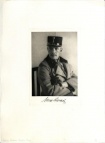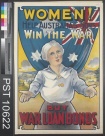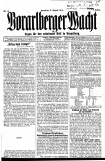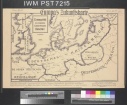Regions Austria-Hungary
Survey Articles (Regional)
Regional Thematic Articles
- Bereavement and Mourning, Commemoration and Cult of the Fallen (Austria-Hungary)
- Between Acceptance and Refusal - Soldiers' Attitudes Towards War (Austria-Hungary)
- Centenary (Czech Republic)
- Centenary (Hungary)
- Centenary (Slovakia)
- Civilian and Military Power (Austria-Hungary)
- Film/Cinema (Austria-Hungary)
- Food and Nutrition (Austria-Hungary)
- Governments, Parliaments and Parties (Austria)
- Governments-Parliaments and Parties (Hungary)
- Historiography 1918-Today (Austria-Hungary)
- Labour, Labour Movements, Trade Unions and Strikes (Austria-Hungary)
- Literature (Austria-Hungary)
- Making Sense of the War (Austria-Hungary)
- Nationalities (Austria-Hungary)
- Occupation during and after the War (Austria-Hungary)
- Organization of War Economies (Austria-Hungary)
- Post-war Economies (Austria-Hungary)
- Post-war Societies (Austria)
- Post-war Societies (Czechoslovakia)
- Post-war Turmoil and Violence (Hungary)
- Press/Journalism (Austria-Hungary)
- Pre-war Military Planning (Austria-Hungary)
- Prisoners of War (Austria-Hungary)
- Propaganda at Home (Austria-Hungary)
- Revolutions (Austria-Hungary)
- Science and Technology (Austria-Hungary)
- Social Conflict and Control, Protest and Repression (Austria-Hungary)
- Tactics, Army (Austria-Hungary)
- The Internment of Russophiles in Austria-Hungary
- War Aims and War Aims Discussions (Austria-Hungary)
- War Finance (Austria-Hungary)
- War Losses (Austria-Hungary)
- Women's Mobilization for War (Austria-Hungary)
Encyclopedic Entries
- Adler, Victor
- Austro-Hungarian Enemy Aliens (USA)
- Automobile Industry (Austria-Hungary)
- Ballhausplatz
- Bauer, Otto
- Beneš, Edvard
- Berchtold, Leopold Graf
- Bosniak Regiments (Austria-Hungary)
- Bosnian Crisis
- Burián von Rajecz, István, Graf
- Cattaro, Mutiny of
- Centenary (Austria)
- Charles I, Emperor of Austria
- Concept of Mitteleuropa
- Conrad von Hötzendorf, Franz Xaver Josef Graf
- Czechoslovak-Hungarian Border Conflict
- Czernin, Ottokar Graf
- Empire
- Expanding Bullets
- Fear
- Feminist Pacifism
- Forts
- Francis Joseph I, Emperor of Austria
- Franz Ferdinand, Archduke of Austria-Este
- Freud, Sigmund
- Germany's Blank Cheque to Austria-Hungary
- Horthy, Miklós
- Islam in Austria-Hungary
- Kraus, Karl
- Kun, Béla
- Lemberg
- Machine Gun
- Markl Internment Camp
- Martial Law
- Masaryk, Tomáš Garrigue
- Mediterranean Theater, Naval Operations
- Music
- Musil, Robert
- Offensive, Gorlice-Tarnow
- Panslavism
- Petroleum
- Prochaska Affair
- Prostitution
- Redl, Alfred
- Refugees (Austria-Hungary)
- Renner, Karl
- Roth, Joseph
- Ruggera, Camillo
- Saint-Germain, Treaty of
- Sanjak of Novi Pazar
- Sarajevo Incident
- Sarkotić von Lovćen, Stephan Freiherr
- Schalek, Alice
- Sixtus Affair
- Smoking and Cigarette Consumption
- Soldiers' Equipment
- Štefánik, Milan Rastislav
- Stormtrooper
- Stürgkh, Karl Graf
- Suttner, Bertha von
- The Good Soldier Švejk (novel)
- The Last Days of Mankind (play)
- The Man without Qualities (novel)
- Tisza, István, Gróf
- Trentino
- Trialism
- Trianon, Treaty of
- Viribus Unitis, SMS
- Vorarlberg Referendum
- War Archives (Austria-Hungary)
- War Bonds
- War Press Office (Austria-Hungary)
- War Requirement Acts
- War Surveillance Office (Austria-Hungary)
- Wiener Philharmoniker (Vienna Philharmonic Orchestra)
See also
- Alliance System 1914
- Antisemitism
- Atrocities
- Bereavement and Mourning
- Between Acceptance and Refusal - Soldiers' Attitudes Towards War
- Caricatures
- Censorship
- Centenary (Internet)
- Centenary (Libraries)
- Centenary (Museums)
- Children and Youth
- Civilian and Military Power
- Civilian Morale
- Commemoration, Cult of the Fallen
- Controversy: The Media's Responsibility for Crises and Conflicts in the Age of Imperialism
- Controversy: War-related Changes in Gender Relations: The Issue of Women’s Citizenship
- Crumbling of Empires and Emerging States: Czechoslovakia and Yugoslavia as (Multi)national Countries
- Demobilization
- Drugs
- Economic Planning before 1914
- Enemy Aliens and Internment
- Espionage
- Food and Nutrition
- Forced Labour
- Governments, Parliaments and Parties
- Health, Disease, Mortality; Demographic Effects
- Imperialism
- International Labour Organization
- International Law and the Laws of War
- July Crisis 1914
- Labor
- Labour Movements, Trade Unions and Strikes
- League of Nations
- Literature
- Media Discourse after the War
- Medicine and Medical Service
- Military Justice
- Moral Norms and Values
- Nationalism
- Naval Warfare
- Negotiating and Mediating Conduct of War
- Occupation during the War
- Organization of War Economies
- Othering/Atrocity Propaganda
- Pacifism
- Paramilitary Violence
- Peace Initiatives
- Photography
- Post-war Societies
- Post-war Welfare Policies
- Press/Journalism
- Pre-war Military Planning
- Prisoners of War
- Propaganda at Home and Abroad
- Property Rights and Economic Nationalism
- Raw Materials
- Red Cross
- Refugees
- Resettlement
- Revolutions
- Rural Society
- Sexuality, Sexual Relations, Homosexuality
- Shifts and Tensions in Ethnic/National Groups
- Social Conflict
- Social Costs of War
- Staging War. Theatre 1914-1918
- State, Civil Society and Relief Organizations for War
- The Churches
- The Everyday as Involved in War
- The Historiography of the Origins of the First World War
- The Military at Home
- The Military Collapse of the Central Powers
- The Paris Peace Conference and its Consequences
- The Way to War
- Urban Societies and Cities
- Venereal Diseases
- Visualization of Violence
- War Aims and War Aims Discussions
- Warfare 1914-1918
- War Finance
- War Letters: Communication between Front and Home Front
- War Losses
- War Psychiatry and Shell Shock
- Willingly to War. Public Response to the Outbreak of War
- Women’s Mobilization for War
- Women War Reporters
- Xenophobia
Survey Articles (Regional)
-
The article surveys the social and military history of Austria-Hungary during the First World War. The war brought a harsh military dictatorship along with innovations in economy, labor deployment, … READ MORE
Regional
Regional Thematic Articles
-
Since the end of World War One it has generally been accepted that the collapse of the Habsburg Monarchy was primarily caused by friction among its ethnic groups. It has furthermore been alleged that … READ MORE
Regional Thematic -
The article describes commemorative acts and festivities marking the centenary of the Great War in the Czech Republic from 2014 to 2018. It examines the trend of individuals exploring their private … READ MORE
Regional Thematic -
In Hungary, World War I commemorations have been mainly organized by the Centenary Commemorative Committee, which is government-run. The committee supports a wide range of cultural programmes, from … READ MORE
Regional Thematic -
Slovakia has a double memory of World War I: the one of former Austro-Hungarian soldiers’ suffering that was more underlined in 2014 and the victorious/heroic one of the Czechoslovak legionnaires … READ MORE
Regional Thematic -
The relationship between civilian and military power in Austria-Hungary during the First World War was determined by a number of factors, including the dual state structure and the controversial … READ MORE
Regional Thematic -
Food became a scarce – and thus decisive – resource for the Habsburg Empire’s warfare. Agricultural production in Austria-Hungary dramatically deteriorated due to causes more or less related to … READ MORE
Regional Thematic -
The closing of the parliament in Vienna in spring 1914 led to the consolidation of a wartime regime that was at once autocratic, decentralized, and poorly equipped to handle the demands of competing … READ MORE
Regional Thematic -
Political life in the Hungarian part of the Dual Monarchy (particularly the constitutional framework, political traditions and mentality) can only be characterized as very different from that of the … READ MORE
Regional Thematic -
Apart from a few brief words regarding the relevant scientific work of international scholars, this article focuses primarily on Austrian World War I historiography from 1918 to the present. Hence, … READ MORE
Regional Thematic -
The First World War was a period of repression and severe privation in Austria-Hungary. The organized labor movement was heavily constrained and its leaders resorted to a strategy of compliance with … READ MORE
Regional Thematic -
This article considers the links between Austrian literature and the First World War, particularly reactions to the war within the genres of poetry, narrative prose, drama and journalism. It will … READ MORE
Regional Thematic -
Recent research has questioned the view that that the population of Austria-Hungary consisted of nations, and that conflicts between them were the main cause of its demise. Nationalism was an … READ MORE
Regional Thematic -
While on the Western Front there were only limited territorial movements, the Eastern Front and warfare in southeastern Europe, including parts of Italy, had all the characteristics of mobile … READ MORE
Regional Thematic -
This article describes the structure and development of the Austro-Hungarian war economy during World War I. It explains the dynamic process that took place within Austria-Hungary’s economy during … READ MORE
Regional Thematic -
The Austrian economy went through several phases in the interwar period, beginning with general post-war misery and massive currency devaluation. This article focuses on the immediate post-war period … READ MORE
Regional Thematic -
The following deliberations approach the “post-war” situation of the young Austrian republic from 1918 onwards. This article addresses the short and long-term consequences of the First World War … READ MORE
Regional Thematic -
Although the Czechoslovak Republic experienced social breakdown and a wave of violence in the immediate post-war years, as did other countries in the region, it managed to overcome the postwar shock … READ MORE
Regional Thematic -
In November 1918, massive popular unrest broke out in the Hungarian countryside, followed by a short but intense borderland war against the Czechoslovakian and Romanian army. Meanwhile, from the … READ MORE
Regional Thematic -
The undisputed superiority of the Western Powers, above all Great Britain in the domain of propaganda together with the collapse of Austria-Hungary suggest that the Hapsburg monarchy was militarily … READ MORE
Regional Thematic -
Austria-Hungary’s General Staff enjoyed a monopoly on war planning. Its long-time Chief Franz Conrad von Hötzendorf worked hard to improve the Habsburg Monarchy’s war preparations and the basic … READ MORE
Regional Thematic -
The following article offers an overview of the central fields of research concerning Prisoners of war (POWs) in the Habsburg Empire during World War One, including living conditions in war camps, … READ MORE
Regional Thematic -
In wartime Austria-Hungary, propaganda’s usefulness for manipulating public opinion and upholding morale was slowly realized. Various types of official and unofficial propaganda then emerged in … READ MORE
Regional Thematic -
The following pages - focusing on the collapse of the Habsburg Empire and the incidents in Austria in 1918/20 - are subdivided into four different periods and aspects: Firstly, World War One until … READ MORE
Regional Thematic -
Thorough research has been carried out only on some subfields within the history of science related to the Habsburg Monarchy during World War I. The most well-documented innovations are those in the … READ MORE
Regional Thematic -
Social Conflict and Control, Protest and Repression (Austria-Hungary)
By Maureen Healy, Dana Bronson and Musa Jemal
This essay traces the experience on the plural home fronts of the Habsburg Empire. With a primary focus on the imperial city, Vienna, it also offers glimpses into the conditions in Hungary and the … READ MORE
Regional Thematic -
The development of Austria-Hungary’s combat doctrine started in 1914 at a typical peacetime level, ignoring more or less most of the modern experiences in Africa and Asia in the early … READ MORE
Regional Thematic -
The internment of “suspicious persons” became a widespread practice and an important component of home front actions during WWI. This entry discusses the Austro-Hungarian internment of parts of … READ MORE
Regional Thematic -
In July 1914 the Habsburg monarchy went to war with Serbia declaring it sought no territorial gain from the struggle. Soon discussions of possible territorial acquisitions, along with economic and … READ MORE
Regional Thematic -
The article presents a new estimate of the war costs and an overview of war finances in Austria and Hungary. Both countries of the Austro-Hungarian Monarchy were unprepared to meet growing war … READ MORE
Regional Thematic -
Estimates of the total losses of the Austro-Hungarian armed forces range from 1.1 to 1.2 million in addition to 450,000 deceased prisoners of war and 300,000 soldiers who stayed missed after war. The … READ MORE
Regional Thematic
Encyclopedic Entries
-
Until his death in 1918, Victor Adler was the most prominent Austrian socialist leader and among the leading personalities of the Second Socialist International. During the war, he aimed to preserve … READ MORE
Entry -
Austrian and Hungarian citizens working in war-related industries were exempt from many restrictions on enemy aliens, but many labor leaders and intellectuals were arrested and interned, often … READ MORE
Entry -
The Austro-Hungarian automotive industry and the necessary equipment for military vehicles developed very slowly in comparison to other European states. During the First World War, the army had to … READ MORE
Entry -
The Imperial and Royal Ministry of the Imperial and Royal House and of Foreign Affairs, informally called “Ballhausplatz” after the Viennese square on which the central office was located, was … READ MORE
Entry -
Otto Bauer was a leading Austro-Marxist and socialist politician who served during the war as an officer in the Austro-Hungarian army. After returning from Russian internment to Vienna in 1917, he … READ MORE
Entry -
Edvard Beneš was a Czech politician, diplomat, and close collaborator of Tomáš Garrigue Masaryk. As Secretary General of the Czechoslovak National Council in Paris from 1916 to 1918, he … READ MORE
Entry -
Graf Leopold Berchtold, Habsburg foreign minister from 1912 to 1915, was confronted with military action during and after the Balkan Wars, yet kept peace. Then, the Sarajevo assassinations, blamed on … READ MORE
Entry -
Following the decisions of the Congress of Berlin in 1878, Austria-Hungary occupied the provinces of Bosnia and Herzegovina. From 1882 onwards, members of all ethnicities in Bosnia-Herzegovina were … READ MORE
Entry -
In the narrow sense, the so-called “Bosnian Crisis” (or “Annexation Crisis”) of 1908 and 1909 was a political conflict between Austria-Hungary and the Ottoman Empire caused by the (formal) … READ MORE
Entry -
István Burián was a leading Austro-Hungarian career diplomat and politician, rising to become the Monarchy’s longest-serving foreign minister during the First World War. Burián’s wartime … READ MORE
Entry -
The mutiny of the sailors on Cattaro, the Austrian-Hungarian Navy Base, occurred on 1 February 1918. The incident ended with the mutineers surrendering. Even if the revolt did not significantly … READ MORE
Entry -
In his youth, the archduke was introduced to the idea of federalism by Archduke Franz Ferdinand. During the first part of World War I, he became a skillful military leader without any political … READ MORE
Entry -
Friedrich Naumann’s ''Mitteleuropa'' (1915) was a liberal voice in the largely illiberal German discussion on the future of East Central and South East Europe. His reasoning, based on principles of … READ MORE
Entry -
Franz Conrad von Hötzendorf was an Austrian officer and Chief of the General Staff of the Austro-Hungarian Army from 1906 to 1911 and from 1912 to … READ MORE
Entry -
From 1918–1920, Czechoslovakia and Hungary claimed their rights over Slovakia and Subcarpathian Ruthenia, two former Hungarian provinces with a Slavic majority. Czech troops occupied Slovakia and … READ MORE
Entry -
Ottokar Graf Czernin was an Austrian politician and the minister of foreign affairs for Austria-Hungary from 1916 to … READ MORE
Entry -
World War I was not simply a conflict among European states but a global war of empires. The fighting took place not only in Europe, but also in Africa, Asia, and across the Middle East, and it … READ MORE
Entry -
During the First World War both sides accused each other of employing illegal small arms ammunition – either expanding or explosive bullets. The Hague Conventions of 1899 and 1907 outlawed … READ MORE
Entry -
Fear
By Jan Plamper
Of the two world wars, the First World War was special in that fear figured prominently in a number of domains, including military tactics, psychiatry, and first-person sources. Fear was to be … READ MORE
Entry -
A minority section of the women’s movements opposed World War I and organized the International Congress of Women at The Hague in April 1915. Its participants demanded women’s rights and more … READ MORE
Entry -
European militaries considered fortifications before the First World War as vital to their strategic planning. Advancements in weapons technology after the mid-19th century caused … READ MORE
Entry -
Under the terms of the 1867 constitution, Francis Joseph retained his prerogatives in foreign policy. His decision to opt for war in 1914 was largely a result of the frustrations of Austria’s … READ MORE
Entry -
This biographical overview of Archduke Franz Ferdinand examines the evolution of his difficult personality through the traumatic experiences of barely surviving tuberculosis and fighting for the … READ MORE
Entry -
Sigmund Freud, the founding father of psychoanalysis, expressed a war-weariness and disappointment with the barbarity of the war that, after the final dissolution of the Habsburg Empire, gave way to … READ MORE
Entry -
Germany’s offer of unconditional support to its Austro-Hungarian ally in July 1914 remains one of the most controversial decisions in modern history. Historians have interpreted the blank cheque in … READ MORE
Entry -
Horthy was a naval officer of Austria-Hungary. During the First World War he was first in command of a cruiser and then chief commander of the navy. After the war he took part in the … READ MORE
Entry -
During the First World War, mobilizing Muslim soldiers and Islamic institutions became an important international concern for Austria-Hungary. This article looks at how the Habsburg Monarchy tried to … READ MORE
Entry -
Karl Kraus was one of the 20th century’s most significant satirists. While his primary target was the Austrian press, his satire took aim at nationalism, parochialism, unrestrained … READ MORE
Entry -
Béla Kun was a Hungarian communist politician. He began his career as a social democrat. During the First World War he was captured by the Russians and later became a Bolshevik in Russia. From 1918 … READ MORE
Entry -
In World War I Lemberg (German: Lemberg, Ukrainian: Lviv, Polish: Lwów) played an important role as a political and administrative center of Galicia and was of great strategic significance as one of … READ MORE
Entry -
Between 1914 and 1918, the machine gun played an ever-increasing role on the battlefield. Today, even though artillery was responsible for the majority of deaths, the machine gun is the weapon most … READ MORE
Entry -
During the years 1915 to 1918 in the internment camp in Markl (Windigsteig), in Lower Austria, up to 1,400 mostly Jewish persons of Russian-Polish and Russian origin were incarcerated. They already … READ MORE
Entry -
Martial law refers to the exercise of governmental power over the civilian population by military authorities. The use of martial law varied among belligerent countries, and its geographical scope … READ MORE
Entry -
Tomáš Garrigue Masaryk was a Czech politician who started the Czechoslovak independence movement abroad. As head of the Czechoslovak National Council from 1916 to 1918, he provided an ideological … READ MORE
Entry -
The real naval war in the Mediterranean turned out to be a struggle against German and Austrian submarines and not a classic battle between major … READ MORE
Entry -
Music
By Akeo Okada
The First World War fundamentally changed the course of 20th century music. The era of late Romanticism, Symbolism and Expressionism had ended, the music culture of the European high … READ MORE
Entry -
The Austrian writer Robert Musil served as a soldier throughout the entire period of the war, first for border security in South Tyrol/Trentino, later on the Italian Front (“Mountain war”), and … READ MORE
Entry -
The Gorlice-Tarnów Offensive of May/June 1915 was a major military success for Austria-Hungary and Germany on the Eastern Front. Following the joint campaign of the Central Powers, the Russian army … READ MORE
Entry -
Panslavism was a movement based on the conviction that all speakers of Slavic languages belong to a single nation. This was a starting point for the activities that aimed to bring Slav cultures and … READ MORE
Entry -
In World War I, the mobility of troops was of major strategic importance. New transportation means like trucks, as well as war planes, submarines and tanks, which began to revolutionize warfare … READ MORE
Entry -
The Prochaska Affair was a diplomatic dispute between Austria-Hungary and Serbia, ostensibly concerning the fate of the Austro-Hungarian consul in Prizren. However, it carried deeper implications for … READ MORE
Entry -
Prostitution was considered among the most important societal problems facing civilian-military authorities in belligerent countries during World War I. Despite growing military control of the … READ MORE
Entry -
On 25 May 1913 Colonel Alfred Redl, the former head of Austria-Hungary’s military espionage, committed suicide in Vienna. As it turned out, Redl had betrayed Austria-Hungary’s spy-network in … READ MORE
Entry -
During World War I, about 1.1 million refugees sought refuge in the interior of Austria-Hungary. The coexistence between the host communities and refugees in the interior was difficult, due to … READ MORE
Entry -
Karl Renner quickly became one of the main theoreticians of a policy of support for the war effort. He saw World War I as a chance for social democratic advance, with state intervention laying the … READ MORE
Entry -
Joseph Roth was a Jewish writer and journalist. His experiences at the Eastern Front in Galicia in 1916–1917 and the demise of the Austro-Hungarian Monarchy after the war had a lasting impact on … READ MORE
Entry -
Camillo Ruggera was an officer of the General Staff in the Austro-Hungarian army. Assigned to the Supreme Command, on 29 October 1918 he was commissioned to make contact with the leaders of the … READ MORE
Entry -
The Treaty of Saint-Germain was signed by Austria and twenty-seven Allied and associated countries in the ''Château Neuf'' in Saint-Germain-en-Laye, southwest of Paris, on 10 September 1919. It … READ MORE
Entry -
Although ''sanjak'' usually means any one of many Ottoman administrative units, one has become known as “the Sanjak.” Following the Treaty of Berlin the Sanjak of Novi Pazar became the symbol of … READ MORE
Entry -
The Sarajevo incident refers to the events surrounding the assassination of Archduke Franz Ferdinand, heir to the Austro-Hungarian throne, and his wife Archduchess Sophie during a state visit to … READ MORE
Entry -
Stephan Baron von Sarkotić was an Austro-Hungarian general who had already made his mark as a political officer prior to the outbreak of World War I. During the war, he formulated different … READ MORE
Entry -
This article deals with the activities of journalist and photographer Alice Schalek as war correspondent during the Great War. Between 1915 and 1917 Schalek reported from the South Tyrolean, Isonzo … READ MORE
Entry -
The Sixtus Affair was the failed attempt by Emperor Charles I. of Austria and his bother-in-law Prince Sixtus of Bourbon-Parma to conclude a compromise peace with the members of the Entente-Powers … READ MORE
Entry -
During the First World War, governments, civilians and soldiers alike prized smoking for its morale-boosting qualities, in addition to a medicinal effect following combat and periods of intense … READ MORE
Entry -
The soldier’s personal equipment had a dual purpose: it was intended to enable him to carry out his military duties, and it was supposed to guarantee, independent of stationary installations, the … READ MORE
Entry -
Milan Rastislav Štefánik was a Slovak astronomer, diplomat, politician, general, one of the organizers of the Czechoslovak legions and one of the founding fathers of Czechoslovakia. In today’s … READ MORE
Entry -
Storm troopers were soldiers in specialized assault units, which emerged in the German army during the First World … READ MORE
Entry -
Karl Graf von Stürgkh was an Austrian member of the Imperial Council, Minister for Education, and Minister President of Cisleithania from 3 November 1911 until his assassination on 21 October 1916 … READ MORE
Entry -
Bertha von Suttner (1843-1914) was awarded the Nobel Peace Prize in 1905. She wrote an internationally acclaimed antiwar novel ''Die Waffen nieder!'' (''Lay Down Your Arms!'') and co-founded the … READ MORE
Entry -
''Osudy dobrého vojaka Švejka za světové války'' (''The Good Soldier Švejk'') by Jaroslav Hašek belongs to the most valuable and informative artistic accounts of the Great War. Despite an … READ MORE
Entry -
The Last Days of Mankind (''Die letzten Tage der Menschheit'') is the major work by Vienna’s most prolific satirist, Karl Kraus. Published in full in 1922, the drama ridicules the interconnected … READ MORE
Entry -
''Der Mann ohne Eigenschaften'' (''The Man without Qualities'') is a novel by Robert Musil, begun in 1918. The first book was published in 1931, and the first part of the second book was published in … READ MORE
Entry -
István Tisza was a Hungarian politician and minister. He served as Prime Minister from 1903 to 1905 and from 1913 to 1917. Austria-Hungary entered the First World War during Tisza's second period as … READ MORE
Entry -
Trentino
By Nicola Fontana and Mirko Saltori
Trentino is an Italian-speaking region which was the southernmost part of the Tyrol. With Italy’s entry into the war, it found itself in the front area. After the war it was annexed to the Kingdom … READ MORE
Entry -
Before and at the beginning of World War I, various proposals concerning the creation of a third part of the Austro-Hungarian Monarchy were brought up for discussion. Each of the aspiring groups … READ MORE
Entry -
The Treaty of Trianon is one of the Paris peace treaties that ended the First World War. It was concluded between Hungary and the Allied and Associated Powers on 4 June 1920 in the Grand Trianon … READ MORE
Entry -
The Austro-Hungarian battleship ''Viribus Unitis'' was commissioned in reaction to the newly built Italian dreadnought, ''Dante Alighieri''. The ''Viribus Unitis'' was the first Austro-Hungarian ship … READ MORE
Entry -
The latter Austrian ''Land'' Vorarlberg saw the rise of a grass root movement for a political union with Switzerland between autumn 1918 and spring 1919. These ideas never materialized, however, as … READ MORE
Entry -
The War Archives (''Kriegsarchiv''), centre of the official historiography of the Imperial and Royal Army in the pre-war period, changed, during the First World War, into a repository for recent war … READ MORE
Entry -
The governments of all belligerent countries issued special loans to finance their expenditure after the war began. To mobilize the financial resources of their peoples required concerted war bonds … READ MORE
Entry -
The War Press Office, or ''Kriegspressequartier'' (KPQ) was the central propaganda institution of the Austro-Hungarian armed forces during World War I. Initially, the KPQ co-ordinated only print … READ MORE
Entry -
The War Requirements Acts were passed in Austria-Hungary in 1912. They placed military requisitions under parliamentary control and helped the army to obtain the most needed products and services … READ MORE
Entry -
During the First World War, Austria-Hungary implemented a state of emergency with several emergency laws overseen by the ''kaiserlich und königlich ''(''k.u.k.'') ''Kriegsüberwachungsamt'' (war … READ MORE
Entry -
The Vienna Philharmonic, a music institution typical of the high bourgeoisie before the First World War, played patriotic music in many charity concerts during the conflict and was sent to neutral … READ MORE
Entry
See also
-
Alliances were an important feature of the international system on the eve of World War I. The formation of rival blocs of Great Powers has previously considered a major cause of the outbreak of war … READ MORE
Thematic -
The First World War and its direct repercussions in the postwar period (revolution, counterrevolution, the founding of republics, and the Paris peace treaties) mark a profound caesura not only in the … READ MORE
Thematic -
The term "atrocity" describes an act of violence condemned by contemporaries as a breach of morality or the laws of war. "Atrocities" are culturally constructed; by 1914, an international discourse … READ MORE
Thematic -
In the modern era, new forms of mourning and meaning-making for fallen soldiers emerged. The human losses of the First World War were largely mourned, honoured and remembered within … READ MORE
Thematic -
Soldiers’ attitudes towards the Great War are a controversial issue, as they prove difficult to assess and raise complex methodological questions. They evolved during the course of the conflict, … READ MORE
Thematic -
This article presents cartoonists as patriotic propagandists mobilizing their pens and brushes for the national cause during the war. It analyses their techniques for arousing emotions such as … READ MORE
Thematic -
Censorship was an indispensable war weapon: its task was to keep the people in an atmosphere of utter ignorance and unshaken confidence in the authorities, and to allow their boundless indoctrination … READ MORE
Thematic -
The centenary events surrounding the First World War have produced a significant amount of digital content in various forms, and thus has set a precedent for how large scale post-war memorisation can … READ MORE
Thematic -
Libraries (local, specialist, and national) contributed in numerous and important ways to commemorative activities during the centenary of the First World War. These included making use of their … READ MORE
Thematic -
This article discusses how European museums – in particular, national war museums – dealt with the centenary of World War I. These museums still tend to tell the story of World War I from a … READ MORE
Thematic -
Mass conscription recast relationships in families, raised minors’ potential as wage earners, and decreased supervision over them. War ravaged the health of young people in Central Europe while … READ MORE
Thematic -
By 1914 the leading states had succumbed to varying degrees of militarism, subordinating other interests to those of the armed forces, yet all were governed by regimes in which the ultimate authority … READ MORE
Thematic -
This article deals with civilian morale during the First World War. Between 1915 and 1918, governments “discovered” the importance of civilian morale and developed vast systems of surveillance to … READ MORE
Thematic -
The First World War ushered in an unprecedented wave of commemorations. Mass death elicited a construction spree in memorial objects and sites across all countries and territories involved in the … READ MORE
Thematic -
Controversy: The Media's Responsibility for Crises and Conflicts in the Age of Imperialism
By Peter Geiss
The article discusses the role of the media in the complex international process leading to the First World War with a focus on the press of the great powers. Recent research has shown that the … READ MORE
Thematic -
Controversy: War-related Changes in Gender Relations: The Issue of Women’s Citizenship
By Birgitta Bader-Zaar
The idea that World War I was a watershed in gender relations has pervaded both contemporary narratives and historiography. In contrast to earlier studies, research now tends to give a more nuanced … READ MORE
Thematic -
Crumbling of Empires and Emerging States: Czechoslovakia and Yugoslavia as (Multi)national Countries
By Katrin Boeckh
During the First World War, Czechoslovakia and the Kingdom of the Serbs, Croats, and Slovenes (called “Yugoslavia” from 1929) emerged as new national states on the territories of the crumbling … READ MORE
Thematic -
The end of fighting in 1918 raised hopes for swift and equitable military demobilization amongst soldiers and civilians. The timing and nature of demobilization varied greatly, though, due to … READ MORE
Thematic -
Throughout history, intoxicants were an important part of the war experience. The First World War was by no means an exception in that respect: its main “war drugs” were alcohol (mostly beer, … READ MORE
Thematic -
This article surveys the financial and economic planning for war before 1914 in the European Great Powers that initially entered the conflict – Austria-Hungary, Britain, France, Germany and Russia. … READ MORE
Thematic -
The internment of enemy aliens in the First World War was a global phenomenon. Camps holding civilian as well as military prisoners could be found on every continent, including in nation-states and … READ MORE
Thematic -
During the entire war, warring powers used the “secret war” to try to break the balance of the battlefield. Generally created in the previous few decades, intelligence and security services saw … READ MORE
Thematic -
During the First World War, food became a major issue for military and civilian matters. This contribution aims to discuss the food situation in the belligerent countries in connection with global … READ MORE
Thematic -
This article examines the conditions, forms and consequences of forced labor and recruitment during the First World War, especially in German-occupied northern France, Belgium, Russian-Poland and … READ MORE
Thematic -
One sees a wide range of political regimes from a democratic republic with universal male suffrage (France) to parliamentary, constitutional, or even oligarchical monarchies in the countries that … READ MORE
Thematic -
The rapid spread of epidemics ravaged military personnel and civilians in and outside Europe’s warzones during the Great War. Further, the great influenza pandemic of 1918-1919 became a global … READ MORE
Thematic -
This article focuses on the extent to which imperialism contributed to the outbreak of the First World War. The first part describes the emergence of specific imperialist cultures and attitudes in … READ MORE
Thematic -
The Treaty of Versailles was signed on 28 June 1919, establishing both the League of Nations and another international organization: the International Labour Organization (ILO). The ILO was founded … READ MORE
Thematic -
The article examines international efforts to curb states’ war-making prerogatives in the second half of the “long” 19th century. It captures new humanitarian sentiments circulating … READ MORE
Thematic -
The international crisis that began with the assassination of Archduke Franz Ferdinand in Sarajevo on 28 June 1914 and culminated in the British declaration of war on Germany on 4 August is referred … READ MORE
Thematic -
Across the major belligerent powers, industrial production and the mobilization and organization of industrial labor became central to the conduct of the First World War. States and private … READ MORE
Thematic -
This article compares the history of labour movements during the war across a range of European countries. It charts the impact of the economic realities of the war upon labour and analyses the … READ MORE
Thematic -
This article seeks to present an overview of First World War literature across many of the combatant nations from the outbreak of the conflict up to the beginning of the Second World War. Taking a … READ MORE
Thematic -
The discourse about the Great War during the interwar period was shaped by numerous factors. The emergence of new media facilitated the use of new forms of expression and profoundly changed the … READ MORE
Thematic -
It is impossible to talk about “the” medical care or “the” medical service of World War I. Medical care varied greatly, depending on geography, strategy, and national, social, or economic … READ MORE
Thematic -
This essay offers a comparative survey of the practice of military justice among several of the key belligerent powers. Accused soldiers enjoyed little in the way of legal protection, and punishment … READ MORE
Thematic -
Change and continuity marked belligerent societies’ norms and values during the First World War. Normative institutions such as marriage and the family proved basically resilient but … READ MORE
Thematic -
This article offers an overview of the progress of nationalism and the national idea starting with its origins as a mass political programme during the French Revolution and tracing its passage up to … READ MORE
Thematic -
All of the great belligerent states of World War I were naval powers and engaged in operations around the globe. While the course of the war did not unfold as predicted by naval officials, it did … READ MORE
Thematic -
Many issues surrounding the conduct of war in the years 1914-1918 were impervious to international negotiation or mediation, due either to a complete lack of consensus or to an absence of trust and … READ MORE
Thematic -
After an initial wave of interest in 1914 and the immediate post-war period, international historiography long neglected the wartime occupation of territories inhabited by large civilian populations. … READ MORE
Thematic -
The First World War was a global conflict that caught most of the participants ill-prepared for the demands of total war. Economic mobilization beyond the initial needs of the troops involved … READ MORE
Thematic -
In August 1914, a targeted and systematic manipulation of opinion by the media, intellectuals and authorities started. Atrocities were attributed to the enemies that arose from preformed images or … READ MORE
Thematic -
The idea of peace in total war may seem irrelevant, but pacifism, or peace activism, did exist during the First World War. A seemingly robust European peace movement existed before 1914, but it … READ MORE
Thematic -
While World War I featured the largest armies ever assembled, it was also fought by unprecedented numbers of paramilitary fighters. In a situation where the line between combatant and non-combatant … READ MORE
Thematic -
This paper examines major peace initiatives during World War I. It describes efforts by the chief European belligerents to split apart enemy coalitions with separate peace settlements as well … READ MORE
Thematic -
The First World War represents a watershed in the history of war photography. It was the first conflict to be photographed in detail by all the participants and the first in which photography was … READ MORE
Thematic -
The First World War caused unprecedented disruption to societies across the globe, from Western and (especially) Central and Eastern Europe to East Africa. While many survivors could celebrate an end … READ MORE
Thematic -
The Great War gave new impulses to the further development of public welfare systems which had emerged in previous decades. The desire for the social protection of the population and the restoration … READ MORE
Thematic -
Word War I had a significant impact on the evolution of the European media scene. Before the start of the war, newspapers in Europe were increasingly popular, free and independent, and transnational. … READ MORE
Thematic -
German and British war planning has attracted a great deal of attention, but also generated a great deal of controversy. This entry charts and evaluates these debates. In the process it outlines the … READ MORE
Thematic -
The First World War marked the shift from a 19th century, relatively ''ad hoc'' management of prisoners of war, to the 20th century’s sophisticated prisoner of war camp … READ MORE
Thematic -
This article summarizes and compares the principal arguments and strategies of propaganda at the home front, the military front, as well as in neutral and enemy countries. These included the … READ MORE
Thematic -
This article explores the policies adopted and implemented against enemy property from the beginning of the Great War to the signing of the peace treaties in Europe. Breaking a long-standing … READ MORE
Thematic -
Raw materials were vital during the First World War. Due to the armaments production, the belligerents’ needs increased significantly, while the available resources fell. Each country intended both … READ MORE
Thematic -
National Red Cross societies played a very important role in the First World War. They supported armies’ medical services, brought relief to prisoners of war and sometimes organized their … READ MORE
Thematic -
This article addresses the scale of wartime population displacement in continental Europe, the relief efforts made on behalf of refugees, their impact on host communities, and the cultural … READ MORE
Thematic -
The conduct of warfare in 1914-1918 included extensive population resettlement in all theatres of war in Europe, both as a result of pre-emptive decisions by civilians to flee in order to evade the … READ MORE
Thematic -
This article surveys the various movements toward social, national, and political revolution that emerged during and in the wake of World War I. The Russian revolutions of 1917 serve as the first … READ MORE
Thematic -
The paper describes the impact of war on peasantry and its mobilisation in the war effort. While observers portrayed the countryside as rich and callous towards urban shortages or waging war, the … READ MORE
Thematic -
This article provides an international overview of the history of sexuality in the Great War, including (1) the venereal disease epidemic, prostitution, and expanding state surveillance of sexuality; … READ MORE
Thematic -
This article examines the changing dynamics of national tensions in the Habsburg, Romanov, and Ottoman empires during three distinct phases of the Great War. The outbreak and early months of the war … READ MORE
Thematic -
This article deals with the nature of social conflict during the war. The length of the conflict and growing food shortages on the home front strained relations between individuals and between social … READ MORE
Thematic -
This article explores how the anticipation, reality, and memory of sacrifice informed experiences and legacies of World War I. Drawing on representative examples from multiple nations, I suggest that … READ MORE
Thematic -
From 1914 to 1918, theatres in all major European cities staged plays – comedies, operettas, revues, classical and modern dramas, music hall shows or sensational plays – day after day. The lively … READ MORE
Thematic -
A vast array of initiatives designed to counteract the destructiveness of the First World War was developed by states and societies across the world. Protecting the bodies and minds of soldiers from … READ MORE
Thematic -
Reflecting current historiography, this article focuses primarily on Christian churches centered in the main European theater of the Great War, including more global interactions with the other … READ MORE
Thematic -
This essay examines how the "everyday" functions in war, not only for those on the home fronts, but for those in combat roles and for those living between the lines. Five important qualities, among … READ MORE
Thematic -
The debate about the origins of the war remains a vibrant area of historical research. It has been characterised by a number of features. First, from the outset, political concerns shaped the debate, … READ MORE
Thematic -
Regardless of whether it was based on volunteer enlistment or conscription, mass mobilization in all of the countries at war between 1914 and 1918 completely upended the pre-war relationships that … READ MORE
Thematic -
October 1918 witnessed the collapse of the German and Austro-Hungarian armies, both greatly affected by war-weariness and starvation. The Austro-Hungarian monarchy lost any remaining loyalty from its … READ MORE
Thematic -
This article offers an overview of peacemaking after the First World War from the armistices of 1918 until 1923. It considers the outcomes of the five Parisian treaties (Versailles, Saint-Germain and … READ MORE
Thematic -
Imperialism shaped almost every facet of international politics from 1898 to 1914. Imperial concerns brought Britain into entente relationships with France and Russia. This Triple Entente often … READ MORE
Thematic -
Cities — with their comparatively large and dense but also vulnerable populations — went from being theaters of mass mobilization in favor of the political status quo to being sites of domestic … READ MORE
Thematic -
This essay traces belligerent policies toward venereal disease (VD) on the fighting and home fronts in Austria-Hungary, France, Germany, Great Britain, Russia, and later, the United States. VD rates … READ MORE
Thematic -
This piece explores the visualisation of violence for home front audiences and shows that violence was often hinted at very strongly, but the actual act was avoided. All home front audiences were … READ MORE
Thematic -
Despite what some believe, there is still a lot to say and learn about the First World War, particularly with regard to war aims. A lot of focus is currently placed on the cultural, social and … READ MORE
Thematic -
Static “trench warfare” belied a dynamic transformation in warfare between 1914 and 1918. Every army grappled with the same issues: how to end a strategic stalemate occasioned by their ability to … READ MORE
Thematic -
The Great War required war-making states to mobilize and sustain the financial resources for a global war on an unprecedented scale. What made war finance during the conflict so special is that this … READ MORE
Thematic -
In nations where literacy was well-established by 1914, letter-writing was critical to the emotional well-being of soldiers and their families. Men in uniform often circumvented the censors and sent … READ MORE
Thematic -
Military sources provide the primary statistics of war losses and casualties during World War I. In order to review and eventually revise their figures, one must understand how military statistics … READ MORE
Thematic -
During the First World War soldiers from all combatant nations suffered from a wide range of debilitating nervous complaints as a result of the stresses and strains of modern warfare. War … READ MORE
Thematic -
It may surprise us to learn that some sectors of the European public were in favour of the war in 1914. The impact of modern weapons was not well understood and many people in the government, … READ MORE
Thematic -
This article explores women’s economic, social, and political responses to the First World War. It addresses their mobilization including their engagement with the war effort as well as their … READ MORE
Thematic -
Female war reporters from belligerent and neutral countries were present in the major war theatres in Europe and the Middle East throughout 1914 to 1918. While admission of journalists to the war … READ MORE
Thematic -
This article provides an overview of xenophobia during the First World War - namely, the ways in which the conflict was justified and sustained by the growth of hatred for external enemies, and … READ MORE
Thematic
Survey Articles (Regional)
-
The article surveys the social and military history of Austria-Hungary during the First World War. The war brought a harsh military dictatorship along with innovations in economy, labor deployment, … READ MORE
Regional
Regional Thematic Articles
-
Since the end of World War One it has generally been accepted that the collapse of the Habsburg Monarchy was primarily caused by friction among its ethnic groups. It has furthermore been alleged that … READ MORE
Regional Thematic -
The article describes commemorative acts and festivities marking the centenary of the Great War in the Czech Republic from 2014 to 2018. It examines the trend of individuals exploring their private … READ MORE
Regional Thematic -
In Hungary, World War I commemorations have been mainly organized by the Centenary Commemorative Committee, which is government-run. The committee supports a wide range of cultural programmes, from … READ MORE
Regional Thematic -
Slovakia has a double memory of World War I: the one of former Austro-Hungarian soldiers’ suffering that was more underlined in 2014 and the victorious/heroic one of the Czechoslovak legionnaires … READ MORE
Regional Thematic -
The relationship between civilian and military power in Austria-Hungary during the First World War was determined by a number of factors, including the dual state structure and the controversial … READ MORE
Regional Thematic -
Food became a scarce – and thus decisive – resource for the Habsburg Empire’s warfare. Agricultural production in Austria-Hungary dramatically deteriorated due to causes more or less related to … READ MORE
Regional Thematic -
The closing of the parliament in Vienna in spring 1914 led to the consolidation of a wartime regime that was at once autocratic, decentralized, and poorly equipped to handle the demands of competing … READ MORE
Regional Thematic -
Political life in the Hungarian part of the Dual Monarchy (particularly the constitutional framework, political traditions and mentality) can only be characterized as very different from that of the … READ MORE
Regional Thematic -
Apart from a few brief words regarding the relevant scientific work of international scholars, this article focuses primarily on Austrian World War I historiography from 1918 to the present. Hence, … READ MORE
Regional Thematic -
The First World War was a period of repression and severe privation in Austria-Hungary. The organized labor movement was heavily constrained and its leaders resorted to a strategy of compliance with … READ MORE
Regional Thematic -
This article considers the links between Austrian literature and the First World War, particularly reactions to the war within the genres of poetry, narrative prose, drama and journalism. It will … READ MORE
Regional Thematic -
Recent research has questioned the view that that the population of Austria-Hungary consisted of nations, and that conflicts between them were the main cause of its demise. Nationalism was an … READ MORE
Regional Thematic -
While on the Western Front there were only limited territorial movements, the Eastern Front and warfare in southeastern Europe, including parts of Italy, had all the characteristics of mobile … READ MORE
Regional Thematic -
This article describes the structure and development of the Austro-Hungarian war economy during World War I. It explains the dynamic process that took place within Austria-Hungary’s economy during … READ MORE
Regional Thematic -
The Austrian economy went through several phases in the interwar period, beginning with general post-war misery and massive currency devaluation. This article focuses on the immediate post-war period … READ MORE
Regional Thematic -
The following deliberations approach the “post-war” situation of the young Austrian republic from 1918 onwards. This article addresses the short and long-term consequences of the First World War … READ MORE
Regional Thematic -
Although the Czechoslovak Republic experienced social breakdown and a wave of violence in the immediate post-war years, as did other countries in the region, it managed to overcome the postwar shock … READ MORE
Regional Thematic -
In November 1918, massive popular unrest broke out in the Hungarian countryside, followed by a short but intense borderland war against the Czechoslovakian and Romanian army. Meanwhile, from the … READ MORE
Regional Thematic -
The undisputed superiority of the Western Powers, above all Great Britain in the domain of propaganda together with the collapse of Austria-Hungary suggest that the Hapsburg monarchy was militarily … READ MORE
Regional Thematic -
Austria-Hungary’s General Staff enjoyed a monopoly on war planning. Its long-time Chief Franz Conrad von Hötzendorf worked hard to improve the Habsburg Monarchy’s war preparations and the basic … READ MORE
Regional Thematic -
The following article offers an overview of the central fields of research concerning Prisoners of war (POWs) in the Habsburg Empire during World War One, including living conditions in war camps, … READ MORE
Regional Thematic -
In wartime Austria-Hungary, propaganda’s usefulness for manipulating public opinion and upholding morale was slowly realized. Various types of official and unofficial propaganda then emerged in … READ MORE
Regional Thematic -
The following pages - focusing on the collapse of the Habsburg Empire and the incidents in Austria in 1918/20 - are subdivided into four different periods and aspects: Firstly, World War One until … READ MORE
Regional Thematic -
Thorough research has been carried out only on some subfields within the history of science related to the Habsburg Monarchy during World War I. The most well-documented innovations are those in the … READ MORE
Regional Thematic -
Social Conflict and Control, Protest and Repression (Austria-Hungary)
By Maureen Healy, Dana Bronson and Musa Jemal
This essay traces the experience on the plural home fronts of the Habsburg Empire. With a primary focus on the imperial city, Vienna, it also offers glimpses into the conditions in Hungary and the … READ MORE
Regional Thematic -
The development of Austria-Hungary’s combat doctrine started in 1914 at a typical peacetime level, ignoring more or less most of the modern experiences in Africa and Asia in the early … READ MORE
Regional Thematic -
The internment of “suspicious persons” became a widespread practice and an important component of home front actions during WWI. This entry discusses the Austro-Hungarian internment of parts of … READ MORE
Regional Thematic -
In July 1914 the Habsburg monarchy went to war with Serbia declaring it sought no territorial gain from the struggle. Soon discussions of possible territorial acquisitions, along with economic and … READ MORE
Regional Thematic -
The article presents a new estimate of the war costs and an overview of war finances in Austria and Hungary. Both countries of the Austro-Hungarian Monarchy were unprepared to meet growing war … READ MORE
Regional Thematic -
Estimates of the total losses of the Austro-Hungarian armed forces range from 1.1 to 1.2 million in addition to 450,000 deceased prisoners of war and 300,000 soldiers who stayed missed after war. The … READ MORE
Regional Thematic
Encyclopedic Entries
-
Until his death in 1918, Victor Adler was the most prominent Austrian socialist leader and among the leading personalities of the Second Socialist International. During the war, he aimed to preserve … READ MORE
Entry -
Austrian and Hungarian citizens working in war-related industries were exempt from many restrictions on enemy aliens, but many labor leaders and intellectuals were arrested and interned, often … READ MORE
Entry -
The Austro-Hungarian automotive industry and the necessary equipment for military vehicles developed very slowly in comparison to other European states. During the First World War, the army had to … READ MORE
Entry -
The Imperial and Royal Ministry of the Imperial and Royal House and of Foreign Affairs, informally called “Ballhausplatz” after the Viennese square on which the central office was located, was … READ MORE
Entry -
Otto Bauer was a leading Austro-Marxist and socialist politician who served during the war as an officer in the Austro-Hungarian army. After returning from Russian internment to Vienna in 1917, he … READ MORE
Entry -
Edvard Beneš was a Czech politician, diplomat, and close collaborator of Tomáš Garrigue Masaryk. As Secretary General of the Czechoslovak National Council in Paris from 1916 to 1918, he … READ MORE
Entry -
Graf Leopold Berchtold, Habsburg foreign minister from 1912 to 1915, was confronted with military action during and after the Balkan Wars, yet kept peace. Then, the Sarajevo assassinations, blamed on … READ MORE
Entry -
Following the decisions of the Congress of Berlin in 1878, Austria-Hungary occupied the provinces of Bosnia and Herzegovina. From 1882 onwards, members of all ethnicities in Bosnia-Herzegovina were … READ MORE
Entry -
In the narrow sense, the so-called “Bosnian Crisis” (or “Annexation Crisis”) of 1908 and 1909 was a political conflict between Austria-Hungary and the Ottoman Empire caused by the (formal) … READ MORE
Entry -
István Burián was a leading Austro-Hungarian career diplomat and politician, rising to become the Monarchy’s longest-serving foreign minister during the First World War. Burián’s wartime … READ MORE
Entry -
The mutiny of the sailors on Cattaro, the Austrian-Hungarian Navy Base, occurred on 1 February 1918. The incident ended with the mutineers surrendering. Even if the revolt did not significantly … READ MORE
Entry -
In his youth, the archduke was introduced to the idea of federalism by Archduke Franz Ferdinand. During the first part of World War I, he became a skillful military leader without any political … READ MORE
Entry -
Friedrich Naumann’s ''Mitteleuropa'' (1915) was a liberal voice in the largely illiberal German discussion on the future of East Central and South East Europe. His reasoning, based on principles of … READ MORE
Entry -
Franz Conrad von Hötzendorf was an Austrian officer and Chief of the General Staff of the Austro-Hungarian Army from 1906 to 1911 and from 1912 to … READ MORE
Entry -
From 1918–1920, Czechoslovakia and Hungary claimed their rights over Slovakia and Subcarpathian Ruthenia, two former Hungarian provinces with a Slavic majority. Czech troops occupied Slovakia and … READ MORE
Entry -
Ottokar Graf Czernin was an Austrian politician and the minister of foreign affairs for Austria-Hungary from 1916 to … READ MORE
Entry -
World War I was not simply a conflict among European states but a global war of empires. The fighting took place not only in Europe, but also in Africa, Asia, and across the Middle East, and it … READ MORE
Entry -
During the First World War both sides accused each other of employing illegal small arms ammunition – either expanding or explosive bullets. The Hague Conventions of 1899 and 1907 outlawed … READ MORE
Entry -
Fear
By Jan Plamper
Of the two world wars, the First World War was special in that fear figured prominently in a number of domains, including military tactics, psychiatry, and first-person sources. Fear was to be … READ MORE
Entry -
A minority section of the women’s movements opposed World War I and organized the International Congress of Women at The Hague in April 1915. Its participants demanded women’s rights and more … READ MORE
Entry -
European militaries considered fortifications before the First World War as vital to their strategic planning. Advancements in weapons technology after the mid-19th century caused … READ MORE
Entry -
Under the terms of the 1867 constitution, Francis Joseph retained his prerogatives in foreign policy. His decision to opt for war in 1914 was largely a result of the frustrations of Austria’s … READ MORE
Entry -
This biographical overview of Archduke Franz Ferdinand examines the evolution of his difficult personality through the traumatic experiences of barely surviving tuberculosis and fighting for the … READ MORE
Entry -
Sigmund Freud, the founding father of psychoanalysis, expressed a war-weariness and disappointment with the barbarity of the war that, after the final dissolution of the Habsburg Empire, gave way to … READ MORE
Entry -
Germany’s offer of unconditional support to its Austro-Hungarian ally in July 1914 remains one of the most controversial decisions in modern history. Historians have interpreted the blank cheque in … READ MORE
Entry -
Horthy was a naval officer of Austria-Hungary. During the First World War he was first in command of a cruiser and then chief commander of the navy. After the war he took part in the … READ MORE
Entry -
During the First World War, mobilizing Muslim soldiers and Islamic institutions became an important international concern for Austria-Hungary. This article looks at how the Habsburg Monarchy tried to … READ MORE
Entry -
Karl Kraus was one of the 20th century’s most significant satirists. While his primary target was the Austrian press, his satire took aim at nationalism, parochialism, unrestrained … READ MORE
Entry -
Béla Kun was a Hungarian communist politician. He began his career as a social democrat. During the First World War he was captured by the Russians and later became a Bolshevik in Russia. From 1918 … READ MORE
Entry -
In World War I Lemberg (German: Lemberg, Ukrainian: Lviv, Polish: Lwów) played an important role as a political and administrative center of Galicia and was of great strategic significance as one of … READ MORE
Entry -
Between 1914 and 1918, the machine gun played an ever-increasing role on the battlefield. Today, even though artillery was responsible for the majority of deaths, the machine gun is the weapon most … READ MORE
Entry -
During the years 1915 to 1918 in the internment camp in Markl (Windigsteig), in Lower Austria, up to 1,400 mostly Jewish persons of Russian-Polish and Russian origin were incarcerated. They already … READ MORE
Entry -
Martial law refers to the exercise of governmental power over the civilian population by military authorities. The use of martial law varied among belligerent countries, and its geographical scope … READ MORE
Entry -
Tomáš Garrigue Masaryk was a Czech politician who started the Czechoslovak independence movement abroad. As head of the Czechoslovak National Council from 1916 to 1918, he provided an ideological … READ MORE
Entry -
The real naval war in the Mediterranean turned out to be a struggle against German and Austrian submarines and not a classic battle between major … READ MORE
Entry -
Music
By Akeo Okada
The First World War fundamentally changed the course of 20th century music. The era of late Romanticism, Symbolism and Expressionism had ended, the music culture of the European high … READ MORE
Entry -
The Austrian writer Robert Musil served as a soldier throughout the entire period of the war, first for border security in South Tyrol/Trentino, later on the Italian Front (“Mountain war”), and … READ MORE
Entry -
The Gorlice-Tarnów Offensive of May/June 1915 was a major military success for Austria-Hungary and Germany on the Eastern Front. Following the joint campaign of the Central Powers, the Russian army … READ MORE
Entry -
Panslavism was a movement based on the conviction that all speakers of Slavic languages belong to a single nation. This was a starting point for the activities that aimed to bring Slav cultures and … READ MORE
Entry -
In World War I, the mobility of troops was of major strategic importance. New transportation means like trucks, as well as war planes, submarines and tanks, which began to revolutionize warfare … READ MORE
Entry -
The Prochaska Affair was a diplomatic dispute between Austria-Hungary and Serbia, ostensibly concerning the fate of the Austro-Hungarian consul in Prizren. However, it carried deeper implications for … READ MORE
Entry -
Prostitution was considered among the most important societal problems facing civilian-military authorities in belligerent countries during World War I. Despite growing military control of the … READ MORE
Entry -
On 25 May 1913 Colonel Alfred Redl, the former head of Austria-Hungary’s military espionage, committed suicide in Vienna. As it turned out, Redl had betrayed Austria-Hungary’s spy-network in … READ MORE
Entry -
During World War I, about 1.1 million refugees sought refuge in the interior of Austria-Hungary. The coexistence between the host communities and refugees in the interior was difficult, due to … READ MORE
Entry -
Karl Renner quickly became one of the main theoreticians of a policy of support for the war effort. He saw World War I as a chance for social democratic advance, with state intervention laying the … READ MORE
Entry -
Joseph Roth was a Jewish writer and journalist. His experiences at the Eastern Front in Galicia in 1916–1917 and the demise of the Austro-Hungarian Monarchy after the war had a lasting impact on … READ MORE
Entry -
Camillo Ruggera was an officer of the General Staff in the Austro-Hungarian army. Assigned to the Supreme Command, on 29 October 1918 he was commissioned to make contact with the leaders of the … READ MORE
Entry -
The Treaty of Saint-Germain was signed by Austria and twenty-seven Allied and associated countries in the ''Château Neuf'' in Saint-Germain-en-Laye, southwest of Paris, on 10 September 1919. It … READ MORE
Entry -
Although ''sanjak'' usually means any one of many Ottoman administrative units, one has become known as “the Sanjak.” Following the Treaty of Berlin the Sanjak of Novi Pazar became the symbol of … READ MORE
Entry -
The Sarajevo incident refers to the events surrounding the assassination of Archduke Franz Ferdinand, heir to the Austro-Hungarian throne, and his wife Archduchess Sophie during a state visit to … READ MORE
Entry -
Stephan Baron von Sarkotić was an Austro-Hungarian general who had already made his mark as a political officer prior to the outbreak of World War I. During the war, he formulated different … READ MORE
Entry -
This article deals with the activities of journalist and photographer Alice Schalek as war correspondent during the Great War. Between 1915 and 1917 Schalek reported from the South Tyrolean, Isonzo … READ MORE
Entry -
The Sixtus Affair was the failed attempt by Emperor Charles I. of Austria and his bother-in-law Prince Sixtus of Bourbon-Parma to conclude a compromise peace with the members of the Entente-Powers … READ MORE
Entry -
During the First World War, governments, civilians and soldiers alike prized smoking for its morale-boosting qualities, in addition to a medicinal effect following combat and periods of intense … READ MORE
Entry -
The soldier’s personal equipment had a dual purpose: it was intended to enable him to carry out his military duties, and it was supposed to guarantee, independent of stationary installations, the … READ MORE
Entry -
Milan Rastislav Štefánik was a Slovak astronomer, diplomat, politician, general, one of the organizers of the Czechoslovak legions and one of the founding fathers of Czechoslovakia. In today’s … READ MORE
Entry -
Storm troopers were soldiers in specialized assault units, which emerged in the German army during the First World … READ MORE
Entry -
Karl Graf von Stürgkh was an Austrian member of the Imperial Council, Minister for Education, and Minister President of Cisleithania from 3 November 1911 until his assassination on 21 October 1916 … READ MORE
Entry -
Bertha von Suttner (1843-1914) was awarded the Nobel Peace Prize in 1905. She wrote an internationally acclaimed antiwar novel ''Die Waffen nieder!'' (''Lay Down Your Arms!'') and co-founded the … READ MORE
Entry -
''Osudy dobrého vojaka Švejka za světové války'' (''The Good Soldier Švejk'') by Jaroslav Hašek belongs to the most valuable and informative artistic accounts of the Great War. Despite an … READ MORE
Entry -
The Last Days of Mankind (''Die letzten Tage der Menschheit'') is the major work by Vienna’s most prolific satirist, Karl Kraus. Published in full in 1922, the drama ridicules the interconnected … READ MORE
Entry -
''Der Mann ohne Eigenschaften'' (''The Man without Qualities'') is a novel by Robert Musil, begun in 1918. The first book was published in 1931, and the first part of the second book was published in … READ MORE
Entry -
István Tisza was a Hungarian politician and minister. He served as Prime Minister from 1903 to 1905 and from 1913 to 1917. Austria-Hungary entered the First World War during Tisza's second period as … READ MORE
Entry -
Trentino
By Nicola Fontana and Mirko Saltori
Trentino is an Italian-speaking region which was the southernmost part of the Tyrol. With Italy’s entry into the war, it found itself in the front area. After the war it was annexed to the Kingdom … READ MORE
Entry -
Before and at the beginning of World War I, various proposals concerning the creation of a third part of the Austro-Hungarian Monarchy were brought up for discussion. Each of the aspiring groups … READ MORE
Entry -
The Treaty of Trianon is one of the Paris peace treaties that ended the First World War. It was concluded between Hungary and the Allied and Associated Powers on 4 June 1920 in the Grand Trianon … READ MORE
Entry -
The Austro-Hungarian battleship ''Viribus Unitis'' was commissioned in reaction to the newly built Italian dreadnought, ''Dante Alighieri''. The ''Viribus Unitis'' was the first Austro-Hungarian ship … READ MORE
Entry -
The latter Austrian ''Land'' Vorarlberg saw the rise of a grass root movement for a political union with Switzerland between autumn 1918 and spring 1919. These ideas never materialized, however, as … READ MORE
Entry -
The War Archives (''Kriegsarchiv''), centre of the official historiography of the Imperial and Royal Army in the pre-war period, changed, during the First World War, into a repository for recent war … READ MORE
Entry -
The governments of all belligerent countries issued special loans to finance their expenditure after the war began. To mobilize the financial resources of their peoples required concerted war bonds … READ MORE
Entry -
The War Press Office, or ''Kriegspressequartier'' (KPQ) was the central propaganda institution of the Austro-Hungarian armed forces during World War I. Initially, the KPQ co-ordinated only print … READ MORE
Entry -
The War Requirements Acts were passed in Austria-Hungary in 1912. They placed military requisitions under parliamentary control and helped the army to obtain the most needed products and services … READ MORE
Entry -
During the First World War, Austria-Hungary implemented a state of emergency with several emergency laws overseen by the ''kaiserlich und königlich ''(''k.u.k.'') ''Kriegsüberwachungsamt'' (war … READ MORE
Entry -
The Vienna Philharmonic, a music institution typical of the high bourgeoisie before the First World War, played patriotic music in many charity concerts during the conflict and was sent to neutral … READ MORE
Entry

















































































































































